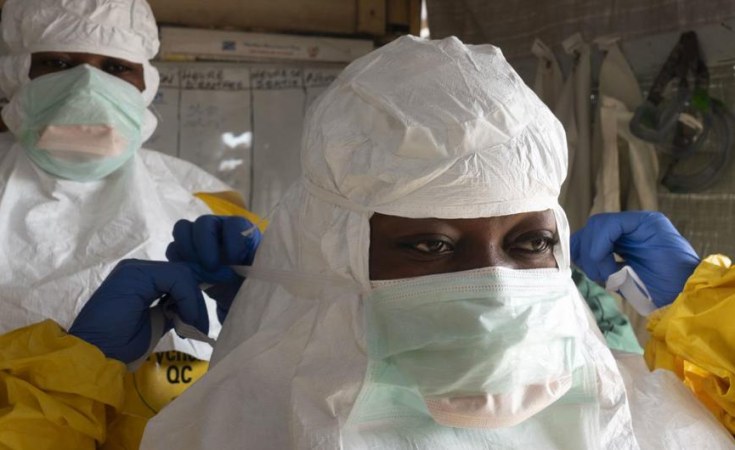Uganda's health ministry has announced the country's first fatality from the highly contagious Ebola virus since 2019, declaring an outbreak in the central district of Mubende.
According to the health ministry via Twitter: "The confirmed case is a 24-year old male... [who] presented with EVD symptoms and later succumbed," using an abbreviation for Ebola virus disease.
In a statement released earlier on Tuesday, the World Health Organization said a 24-year-old in Mubende had tested positive for "the relatively rare Sudan strain" of the virus.
"This follows an investigation by the National Rapid Response team of six suspicious deaths that have occurred in the district this month," WHO added.
Eight other suspected sufferers are reportedly undergoing treatment.
WHO Africa Director Matshidiso Moeti confirmed: "This is the first time in more than a decade that Uganda is recording the Ebola Sudan strain.
"We are working closely with the national health authorities to investigate the source of this outbreak while supporting the efforts to quickly roll out effective control measures," she said.
Uganda has stellar experience in handling outbreaks and epidemics of this nature. The @MinofHealthUG has dispatched teams to Mubende District to enhance surveillance and community awareness. The public is urged to remain vigilant and calm as teams undertake the necessary action. https://t.co/HIN5mU1kvj-- Ministry of Health- Uganda (@MinofHealthUG) September 20, 2022
Recent history of 'Sudan strain'
The WHO says there have been seven previous outbreaks of the Sudan strain of Ebola, including four in Uganda and three in Sudan.
Uganda - which shares a border with the Democratic Republic of Congo - has experienced several Ebola outbreaks in the past, most recently in 2019, when at least five people died.
Meanwhile, the DRC recorded a new case in the east of the country last month, less than six weeks after an epidemic in the country's northwest was declared over.
At present there is no licensed medication to prevent or treat Ebola, although a range of experimental drugs are in development and thousands have been vaccinated in the DRC and some neighbouring countries.
Uganda's Health Minister Jane Ruth Aceng Ocero says they have started vaccinating frontline workers - including customs officials - at the DRC border.
Highly contagious, often fatal
Ebola is an often fatal, viral haemorrhagic fever with a typically high mortality rate, reaching 90 percent in some outbreaks.
First identified in 1976 in the DRC - then Zaire - the virus, whose natural host is the bat, has since set off a series of epidemics in Africa, that have killed around 15,000 people.
Human transmission is through body fluids, with the main symptoms being fever, vomiting, bleeding and diarrhoea.
Outbreaks are difficult to contain, especially in urban environments.
People who are infected do not become contagious until symptoms appear, which is after an incubation period of between two and 21 days.
The worst epidemic in West Africa between 2013 and 2016 killed more than 11,300 alone.
The DRC has had more than a dozen epidemics, the deadliest killing 2,280 people in 2020.


